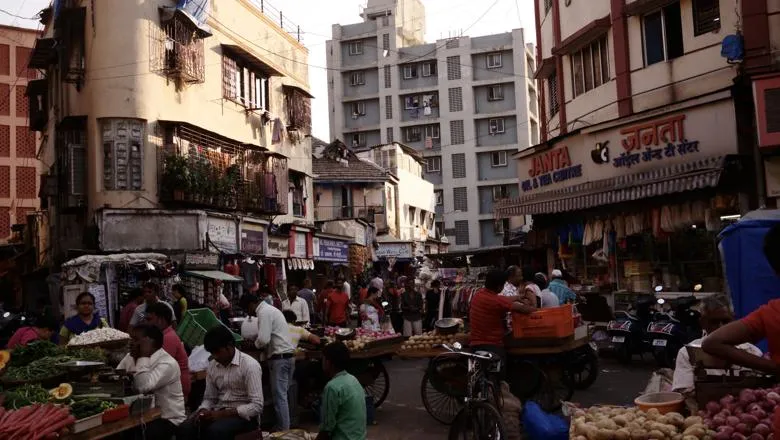18 July 2022
Creating full and productive employment and decent work for all
Damian Grimshaw, Professor of Employment Studies
Damian Grimshaw explains his work for the next session of the UN's Commission for Social Development

When the COVID pandemic first started to spread beyond Wuhan through the international travel of business people and skiing enthusiasts, we fleetingly imagined that this was a disease that did not discriminate. But it soon became clear that COVID’s impact was not equal, neither in terms of health, nor economically. Those who were already the most vulnerable, suffered the most.
This is why the session of the UN’s Commission for Social Development, to be held in February 2023, will focus on decent work for all as a way of overcoming inequalities and accelerating the recovery from the COVID-19 pandemic. I recently took part in an expert group meeting preparing the way for this session, focussing on the issue of workers in informal and precarious employment and how they can be better protected.
What is informal work?
The International Labour Organisation defines informal work as involving work in the informal economy (such as with unregistered enterprises), informal work in the formal economy (nondeclared jobs, earnings below social protection thresholds, or non-compliance with law) and informal work in households (contributing family workers).
Informal work is found in all sectors and encompasses a variety of employment forms. Informal workers might be self-employed, working within the family business or farm, as casual wage earners, or have diverse contractual arrangements in the formal economy, including the digital economy. Informal work makes up 61 per cent of the global workforce, from an average of 18 per cent of non-agricultural labour in the developed world, to more than 90 per cenbt in some emerging economies
While informal and precarious work can take different forms, it almost always involves a lack of social protection such as sick pay or pensions, highly limited employment rights and a lack of trade union representation. Informal and precarious workers have poor access to training and retraining, and a lack of income security that can often lead to extreme poverty.
In recent years there has been a rise in precarious work in formal employment in both developed and developing countries, as employers and states have created more flexible labour regimes. It is estimated that around two billion people worldwide, three in five workers, are part of the informal workforce.
Why did COVID hit the informal workforce so hard?
The research to date suggests that the calamitous rise in global impoverishment, hunger and illness during the last two years occurred in large part as the result of the exposed situation of workers and families reliant on informal and precarious work. During the pandemic, precarious workers in a variety or types of employment were more exposed to COVID. The feminised, largely informal domestic workforce were exposed to the virus in clients’ homes.
Migrant domestic workers faced additional risks of exploitation in countries that retain elements of the 'kafala' system. Street vendors working in crowded public spaces faced a very high risk of contagion, as did waste pickers who handled material that may be contaminated. In the gig economy, drivers typically did not have the option to cancel trips if passengers were not wearing masks.
Those precarious workers who did not continue working at higher risk to their health during the pandemic, were more likely than those formal employment to suffer a collapse in income. For some workers, the greater vulnerability was in part caused by their work in high-contact, urban services work most affected by containment measures.
In India, the abrupt and complete lockdown on 24 March 2020 closed informal markets and vending sites (except food carts), sparking a humanitarian food security crisis. Informal home-based workers, who produce goods and services for domestic and global supply chains, also lost contracts for work from clients as markets collapsed; many of these workers were unable to collect payments from previous completed orders.

Evidence for the world’s workforce shows that it has systematically been the poorest and lowest earning workers who were most likely to lose employment and income. In the United States, for example, compared to Americans who earned more than $150,000 (US), those earning $50,000 (US) or less were more than twice as likely to say they or a family member lost jobs amidst the crisis. Reflecting their over-representation in informal and precarious work, young people, ethnic minorities and indigenous people were more likely than other groups to experience job losses.
Mitigating the effects of the COVID lockdowns
The adverse shock of unemployment is long lasting and this ‘COVID-19 cohort’ of vulnerable groups of workers face a high risk of being severely penalised (or ‘scarred’) in their future earnings and work opportunities. This means that making labour markets more inclusive is a critical issue. Policy interventions ought to focus on protecting those in the many different kinds of informal and precarious work, while also enabling supported transitions to formal employment. We should be striving for:
- A universal right to paid sick-leave, a decent pension and unemployment benefits
- Increased investment in care work to create more formal job opportunities in the caring sector and alleviate the caring burden on women that restricts their employment choices.
- The promotion of inclusive social dialogue and the protection of the right to collective bargaining. This is especially important in informal and precarious work where contractors, middlemen, gangmasters or employers enjoy greater power in setting employment conditions.
- The right to a minimum wage that takes into account the very varied forms that informal work can take and is properly enforced.

